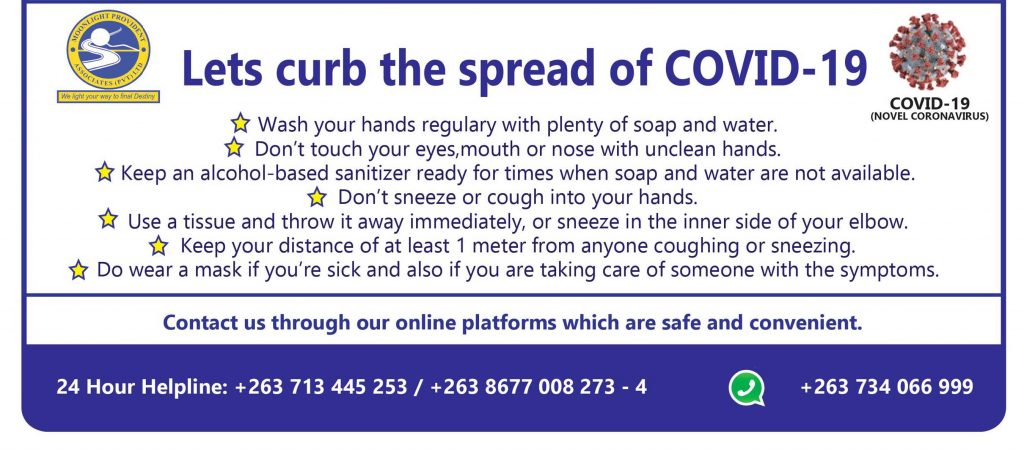Impacts of the current COVID-19 global pandemic to Africa could be devastating to livelihoods, health and food security. Despite the upsurge in humanitarian measures to support vulnerable people on the continent, the compounded effects of health and food security crises are placing a heavy burden on African economies. It is in this context that African experts gathered around a webinar organized by the African Risk Capacity (ARC), to discuss how African economies can better prepare and respond to health and food insecurity risks exacerbated by the pandemic.

In a world of compounding crises, countries, communities, private sector entities need to better manage crises. As a Specialized Agency of the African Union, ARC is vested with the mission to use modern finance mechanisms, such as risk pooling and risk transfer to create pan-African climate response systems that enable African countries to meet the needs of people harmed by natural disasters and outbreaks.
“COVID-19 is a wakeup call for Africa but also a wonderful learning opportunity. There is necessity for a transformational risk management on the continent at all level both public and private”, said UN ASG Mohamed Beavogui, Director-General of ARC.
“We need a risk management system that is digitally anchored, institutionally structured at the regional and country levels as well as risk sensitive public policies supported. We must be prepared and have clear understanding of our countries’ risks profiles,” he added.
On the socio-economic impact of the pandemic, Dr. Ibrahim Mayaki, CEO of AUDA-NEPAD, stated that “Africa is now faced with a systemic challenge because the pandemic is not about health only, it is also about food security, inequality and social disorders. In this context Disaster Risk Management becomes fundamental. “
Regarding the achievement of the Sustainable Development Goals (SDGs), the CEO of AUDA-NEPAD remarked that,“ we need to rethink SGDs and also the African Development Goals (ADGs) within the context of AU Agenda 2063; but this will only happen if we have a proper political determination through our leadership to increase our level of integration.”
The COVID-19 pandemic has also had a devastating impact on African agriculture, a sector that contributes up to 65% of employment in the continent. It is therefore crucial to have a special focus on agriculture, in response to a post COVID-19 recovery era.
“At UNECA (United Nations Economic Commission for Africa), we are looking at farmer support programs but also more investment in agriculture to prepare and plan for impacts of this nature. We are also working with partners to see how we can tackle the problem of food security and ensure that we don’t find ourselves with nothing to eat in the coming 6 or 12 months. We want to have a coordinated approach as to how best we look at the issues of agriculture and food security,” said Mr. William Lugemwa, Director, Private Sector, Development & Finance Division, who represented USG Vera Songwe, the Executive Secretary of UNECA.
Prof. Stanley Okolo, Director-General of the West African Health Organization (WAHO) shared a perspective on how his agency is responding to the pandemic.
“It is important to stress that this is different from the Ebola crisis we had in West Africa. Although we have had preparedness in terms of epidemics from that experience, but this crisis is different because rather than being only 3 countries it now has affected all 15 ECOWAS countries”, he said.
He further commented on the importance of strengthening preparedness regarding Public Health Emergencies holistically and highlighted the need for African countries to adopt the payment of premiums, via the African Risk Capacity, towards preparing themselves for the next Pandemic.
“Africa needs to put disaster risk management systems not just to win the fight against this Pandemic, but for future pandemics and natural disasters. This is where the role of African Risk Capacity is very key to a timely and integrated regional response”, Prof. Okolo concluded.
At individual country level, Mrs. Judith Rusike, Director of Financial and Capital Markets and representative of the Minister of Finance and Economic Development in Zimbabwe, shared perspectives on the country’s budgetary challenges in the face of COVID-19. “In addition to the COVID-19 pandemic, we’ve had ongoing challenges including food insecurity due to successive previous droughts and other climate related disasters. The government has come up with measures including distribution of food aid to the vulnerable which has provided appreciable assistance”, she indicated.
Mrs. Rusike added that ARC payouts, where a coverage is taken, can assist countries with some level of timely relief in the event of disaster. “The ongoing work of ARC to launch an O&E product that would include Coronaviruses is very laudable as it will strengthen preparedness against future pandemics such as COVID-19”, she concluded.
The webinar highlighted the following among others ; (i) the effects of the global pandemic on food security and the livelihoods of Africans; (ii) role of risk management systems such as continental and country risk profiles and early warning systems for health and food insecurity; (iii) opportunities for developing better financial response systems in Africa; and, the need for a concerted African led strategy for better-addressing food and health security risks.






